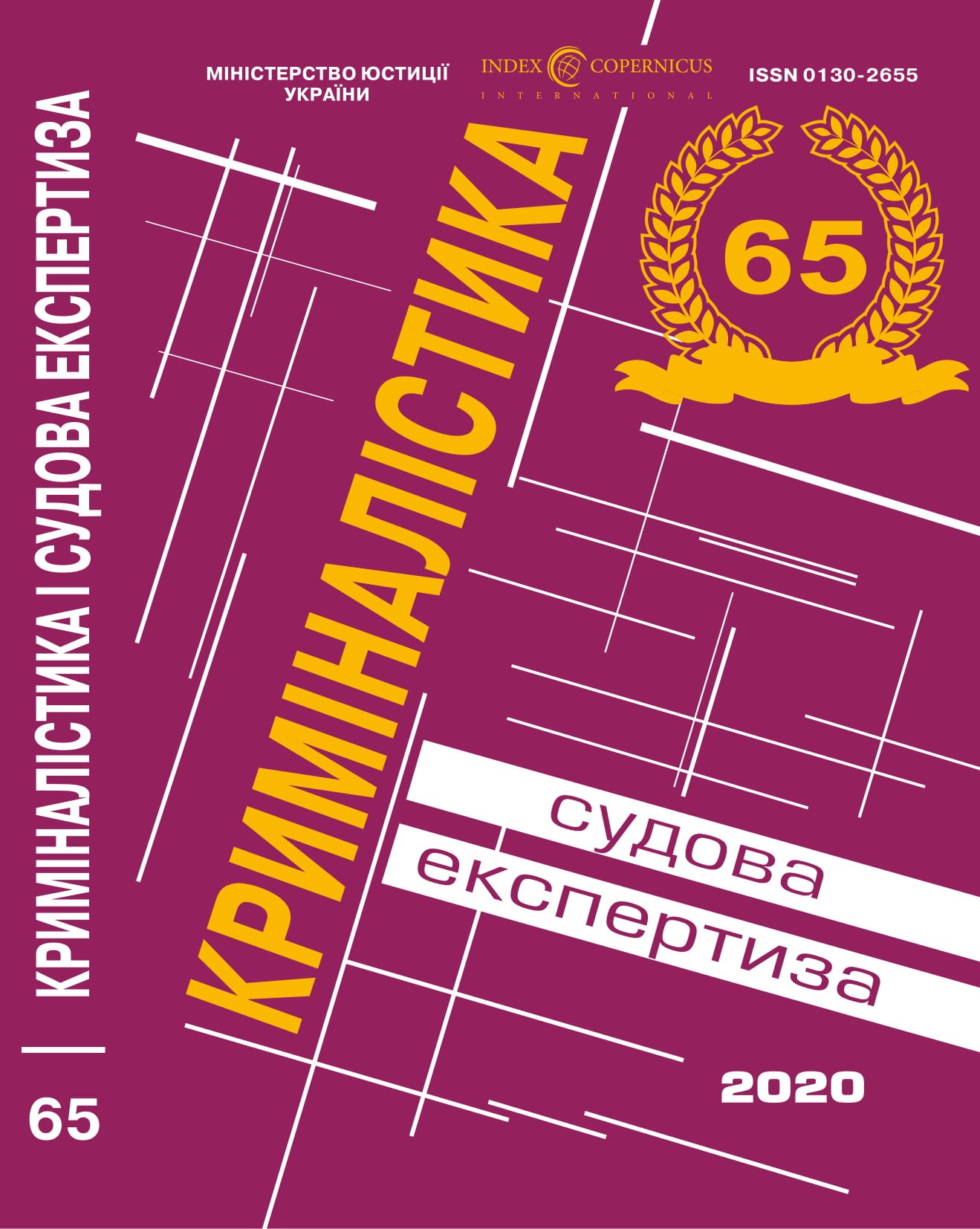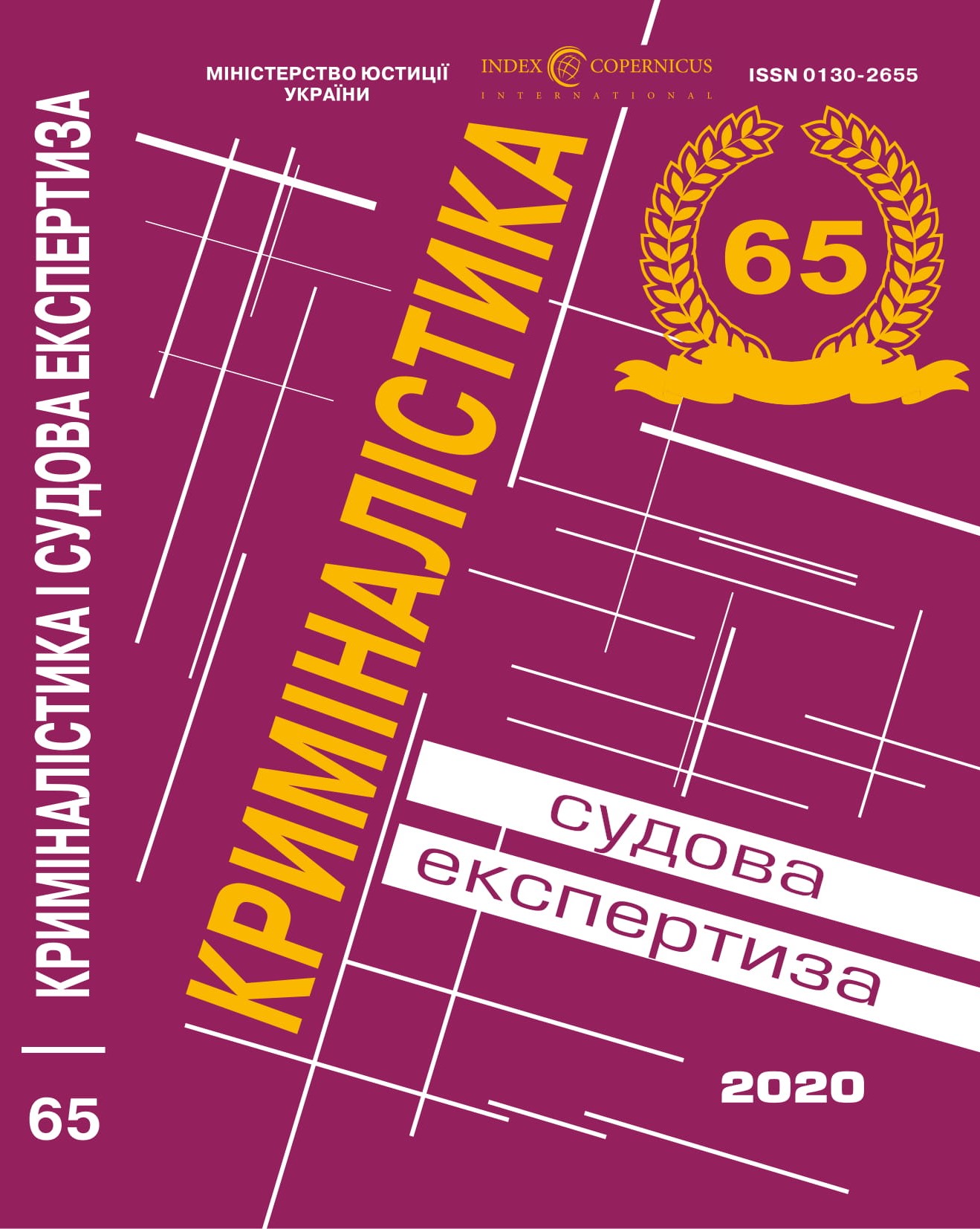DOI: https://doi.org/10.33994/kndise.2020.65.03
I. Hora, V. Kolesnyk
Attention applies on the necessity of introduction of modern innovative technologies for practice of traditional criminalistics examinations. In connection with reorganization and modernization of activity on investigation and judicial consideration of criminal cases, the special attention must be turned on the necessity of the use of scientific methods of work. Passing to new, more high technological level of activity in judicial examination is possible only on the basis of, informative and functional analysis of the systems of all infrastructure of expert activity in Ukraine which takes place in the conditions of processes of European integration. Requirements rise to the general standards, to perfection of the legal adjusting, expansion of circle of expert tasks, which decide the Ukrainian judicial experts. It promotes authenticity and validity of conclusions of expert, instrumental in perfection of methods of expert research and their accordance international standards. In addition, today judicial examination is not only the important instrument of providing of just justice but also one of facilities of defending of interests of the state abroad. Application acknowledged world practice of the innovative going near research of proofs it is straight related to possibility of the use of potential of Ukrainian judicial expert establishments at the decision of questions not only in domestic but also in international courts. Scientific bases of judicial expert researches get better, the number of objects of examination is increased, and the circle of questions on which it is possible to get an answer broadens. Automation of expert researches is one of directions of their improvement. With their help, it is possible to expose conformities to law, dependences which hardness to set traditional criminalistics methods. Accordingly, more difficult and perfect methodical providing is for this purpose needed and scientists must develop him together with practices. Efficiency of expert activity depends not only on the competence of expert and presence for him modern equipment and new technologies but from the level of the informative providing, from the degree of co-operating with the side of customer of judicial examination. Investigators and court must know possibilities of modern examination, and an expert must get high-quality materials and know tasks, which decide law enforcement authorities and court. Authors expose separate possibilities of expert researches with the use of such modern methods as DNA-analysis, IR-spectrometry, reflected ultraviolet imaging system, 3D-designs et al. Typical expert situations are considered, for permission of which it is necessary to use expert technologies.
Key words: judicial examination, traditional criminalistics examinations, expert technologies, innovative methods, informative providing.



